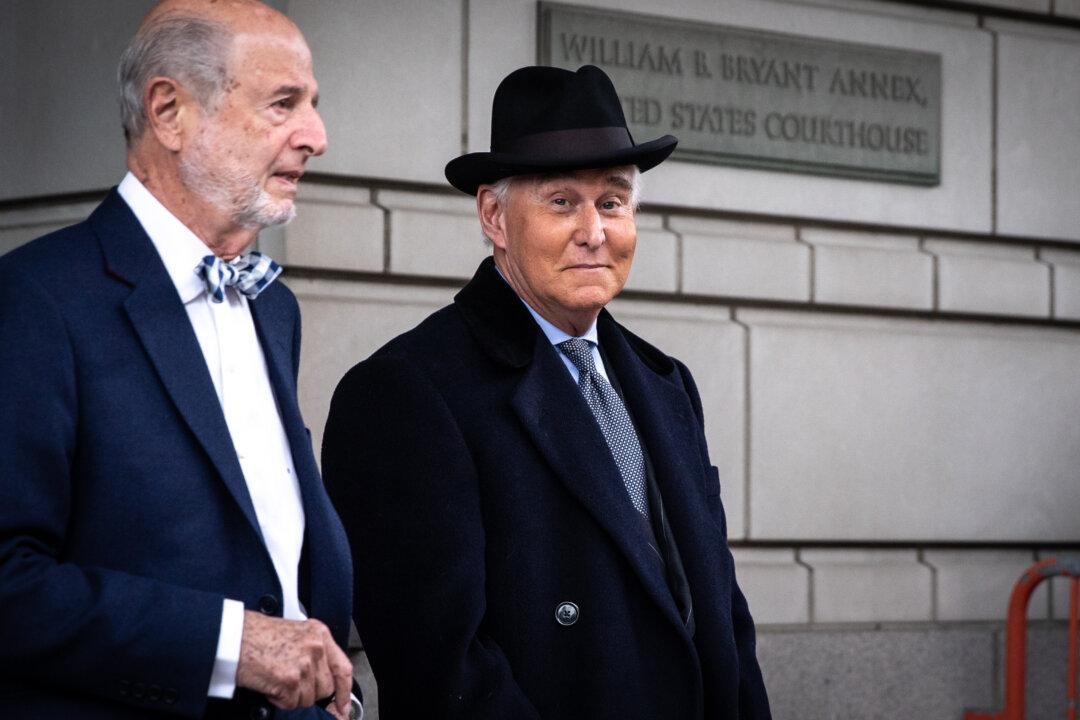Roger Stone, the longtime friend and former adviser to President Donald Trump, was sentenced on Feb. 20 to three years and four months in prison at a federal court in Washington amid controversy over how the Department of Justice handled his case in recent weeks.
Stone was convicted on charges including lying to a congressional committee that was investigating Russian interference in the 2016 U.S. election.





